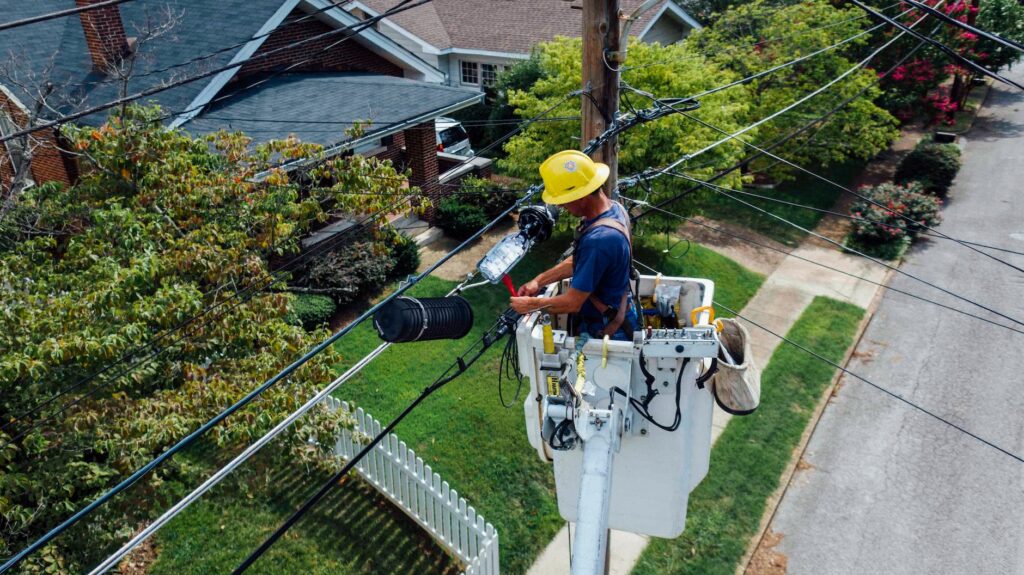In the UK, the notion of a ‘job for life’ has become increasingly outdated. Today, career changes are not just common; they’re often celebrated as a way to rejuvenate one’s professional life and pursue passions that were perhaps overlooked in youth. One such career path that has seen a surge in interest from those looking to make a significant change is that of the electrician. Specifically, many are asking: is it feasible to embark on this journey at 40?
The answer is a resounding yes. Becoming an electrician at 40 is not only possible, but it can also be a highly rewarding decision, offering a blend of practical work, problem-solving, and the opportunity to make a tangible difference in people’s lives. This article aims to guide those considering such a career change, focusing on the steps required, the benefits, and the challenges one might face.
Why Choose to Become an Electrician at 40?
The reasons for considering a career as an electrician at 40 can vary widely. For some, it’s a long-held interest in electrical work that’s never been pursued. For others, it’s about seeking a career that offers stability, respect, and growth potential. The demand for skilled electricians in the UK remains high, driven by constant advancements in technology, renewable energy, and the ongoing need for maintenance and installation services in both residential and commercial settings.
Moreover, the role of an electrician comes with the promise of variety. No two days are the same, with tasks ranging from installing lighting systems in new buildings to troubleshooting electrical faults in historical properties. It’s a career that combines intellectual challenge with physical activity, appealing to those who dread the thought of being desk-bound.
The First Steps
Embarking on a new career as an electrician involves several key steps. Initially, it’s essential to research and understand the qualifications required. In the UK, this typically means achieving a Level 3 Diploma in Electrical Installations (Buildings and Structures) or equivalent. For those with no prior experience, this journey often begins with a Level 2 Diploma, progressing to Level 3 upon completion.
Training can be undertaken at various institutions across the country, including technical colleges and private training providers. However, it’s crucial to ensure that the chosen course is recognised by the industry and provides a pathway to achieving a Qualified Supervisor status, allowing you to work self-employed or start your own business.
Apprenticeships: Earning While You Learn
One of the most effective routes into the profession is through an apprenticeship. Apprenticeships offer the invaluable opportunity to learn on the job while earning a wage. This hands-on experience is complemented by classroom learning, covering everything from electrical theory to building regulations.
For those in their 40s, the prospect of becoming an apprentice might seem daunting, particularly if it involves a pay cut. However, many find the long-term benefits far outweigh the initial challenges. Apprenticeships are also increasingly tailored to accommodate adult learners, recognizing the wealth of experience they bring to their new role.
The Role of Experience
Entering the electrical trade at 40 means bringing a wealth of life experience that can be incredibly beneficial. Skills such as problem-solving, customer service, and time management, often honed in previous careers, are highly valued in the electrical industry. Furthermore, maturity and reliability are traits that employers and clients alike look for in an electrician, giving those starting later in life a distinct advantage.
Training and Certification
Upon completing the necessary training, the next step is to achieve certification. This typically involves passing a practical assessment and a theory exam, leading to qualifications such as the City & Guilds 2391-52, which covers inspection and testing. Certification not only validates your skills but also is crucial for compliance with UK building regulations and standards.
The Importance of Continuous Learning
The field of electrical work is ever-evolving, with new technologies and regulations continually emerging. As such, continuous professional development is a must. This might involve specialized training in areas like renewable energy systems or smart home technology, allowing you to stay ahead in the field and offer a wider range of services.
Networking and Finding Work
Building a network is crucial in the electrical trade. Joining organizations such as the National Inspection Council for Electrical Installation Contracting (NICEIC) can provide valuable resources, support, and credibility. Reach out to local electricians like Carter in Chester who may be able to offer insights into the industry and potential opportunities for collaboration or employment.
The Rewards
The rewards of becoming an electrician at 40 extend beyond financial gains. It offers a sense of accomplishment, the joy of lifelong learning, and the opportunity to impact people’s lives positively. Whether it’s providing essential services to homes or contributing to large-scale projects, the work is varied and fulfilling.
Challenges and Considerations
It’s important to acknowledge the challenges. The physical demands of the job, the initial reduction in income during training, and the time commitment required for qualification can be significant. However, with determination and support, these hurdles can be overcome.
Conclusion
Becoming an electrician at 40 is a viable and rewarding career change. It requires commitment, a willingness to learn, and resilience, but the benefits are clear. From job security and competitive pay to the satisfaction of skilled, hands-on work, it’s a career that offers both personal and professional fulfillment.
For those contemplating this path, the message is clear: it’s never too late to pursue a career that sparks your interest. With the right training, a proactive approach to learning, and the utilization of existing skills and experiences, becoming an electrician can be a bright new chapter in your professional life.

